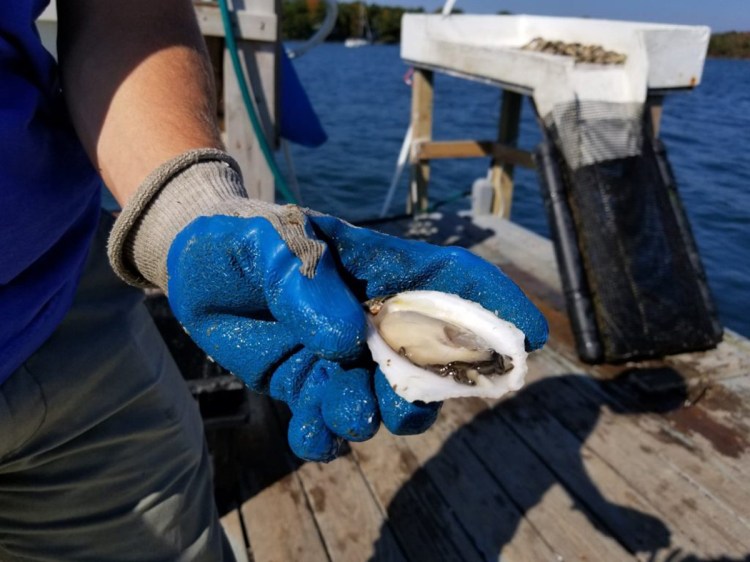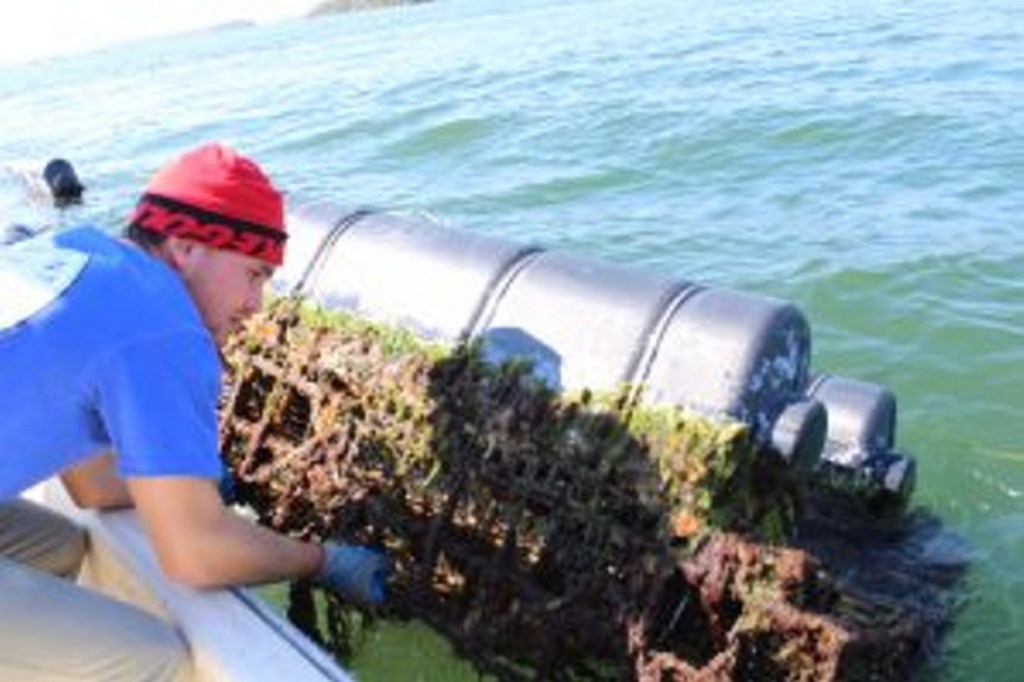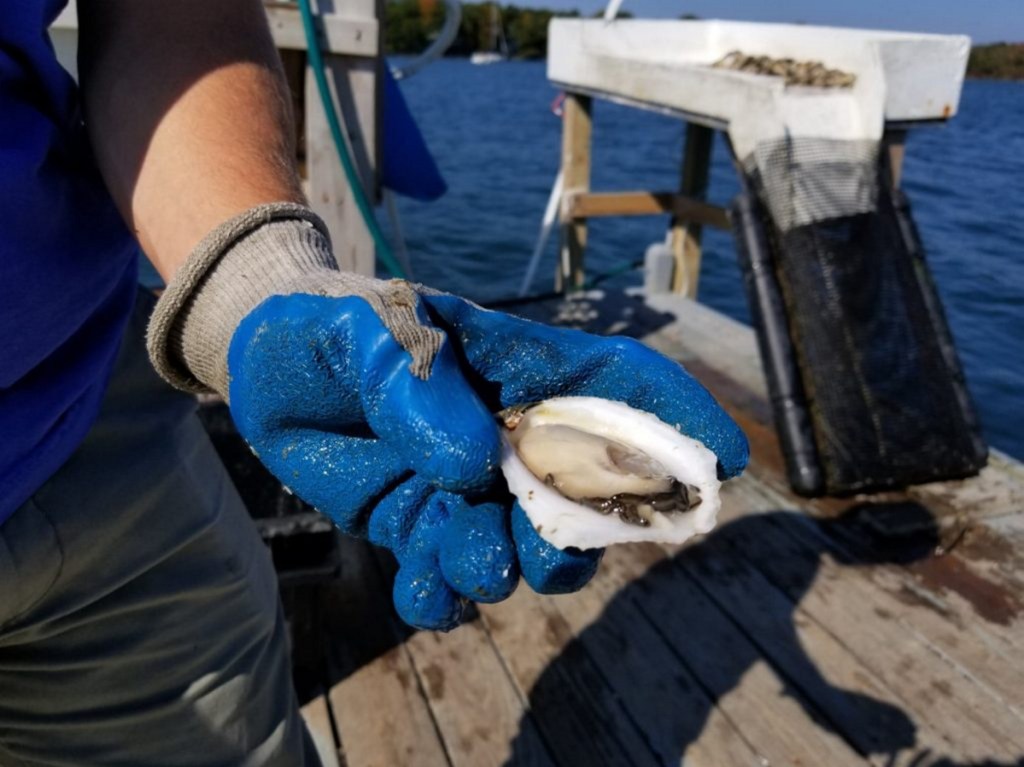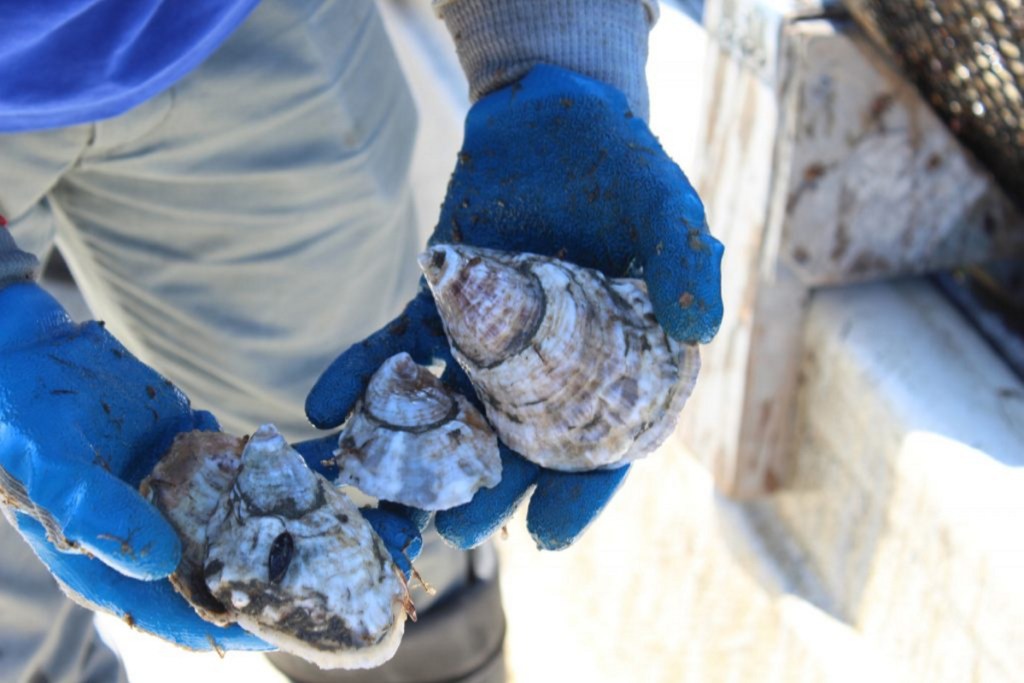BRUNSWICK — Signs that read “Stop the oyster factory” line Mere Point Road, dotting dozens of trees and property lines on the roadsides leading all the way to the boat launch. The subject of residents’ ire is an unassuming business based out of a large red barn known as the Mere Point Oyster Co. Now in its third year, it operates on about a quarter-acre on Maquoit Bay.
But the operation might not be so small for much longer. Owners Doug Niven and Dan Devereaux have applied for a 10-year, 40-acre lease in Maquoit Bay in the area south of Bunganuc Rock and west of the Mere Point peninsula. If approved, this would expand the area of their operation by about 160 times, possibly producing more than 16 times the oysters they harvested this year and growing to 5 million oysters by 2023.
The expansion proposal has drawn opposition from some in the community, including members of the Maquoit Bay Preservation Group – 40 or 50 property owners concerned about the greater implications of the lease. There is not enough information out there, they argue, to adequately determine the ecological effects of an operation this size, which would be the second largest in Maine. A 50-acre oyster farm operates in Trenton.
The lease application details a 5-acre nursery for up to 2 million seed oysters, a 10-acre intermediate area for oysters in the early to mid stages of growth, and 20 acres for the full-grown oysters and for sinking the cages during the winter months. An additional 5-acre “experimental” area would be used for scallops and quahogs.
The space seems intimidating, but according to Niven, the 40 acres covers slightly more than 1 percent in the 3,000-acre bay.
Devereaux said the operation would be spread out, and wouldn’t cover all of that 40-acre plot. If the company consolidated all of its gear into one corner of the leased area, it would take up about 1.5 acres. But with 250,000 oysters in the water now, and with the goal of building that closer to 5 million, they need more space. No matter what, it would take years to get to that size, he said.
A public hearing before the Maine Department of Marien Resources is set for Thursday, 6 p.m., at Coffin Elementary School, 20 Barrows St., Brunswick.
While opponents of the project have expressed concerns that the operation would dominate the view of the bay, Niven argues that with more space, the visual impact may be a little less. The extra space also gives the company some management flexibility, Devereaux said, adding that calling it a factory is just a “scare tactic.”
Not everyone feels the same way. The Maquoit Bay Preservation Group was formed by a group of citizens like Mark Wyman and Paul Dioli, who say they support aquaculture but are concerned that Devereaux and Niven are biting off more than they can chew – and more than the bay can handle.
Early on, Dioli, Wyman and other residents received a letter from Niven and Devereaux, who is also the town harbormaster, introducing themselves and their small business, inviting them over for open house “office hours” and oyster tastings.
It all “seemed harmonious” and neighborly, Dioli said, until another neighbor found the 40-acre lease application. Until that point, they were under the impression that Devereaux and Niven were just continuing with their current aquaculture sites, which Dioli and Wyman say they fully supported. There was a blatant lack of transparency and the owners were “covert” about their plans, Dioli argued.
Niven and Devereaux claim the exact opposite – they were not hiding anything. The application had been online for months and they were willing to speak with anyone who had questions about their plans. In fact, according to Niven, he had tried to reach out to some of his neighbors to talk about their concerns, but they would not speak with him.
It’s is not just the lack of transparency that Dioli, Wyman and the others are upset about. The farm would be located in the middle of the deepest part of the bay, which is traversed by fishermen, kayakers and other boaters.
“This size and density has never been seen in Maine,” Dioli said, adding that he thinks this goes beyond a “not in my backyard” issue and could be potentially dangerous for the health of the bay.
hlaclaire@timesrecord.com
Copy the Story LinkSend questions/comments to the editors.






Success. Please wait for the page to reload. If the page does not reload within 5 seconds, please refresh the page.
Enter your email and password to access comments.
Hi, to comment on stories you must . This profile is in addition to your subscription and website login.
Already have a commenting profile? .
Invalid username/password.
Please check your email to confirm and complete your registration.
Only subscribers are eligible to post comments. Please subscribe or login first for digital access. Here’s why.
Use the form below to reset your password. When you've submitted your account email, we will send an email with a reset code.